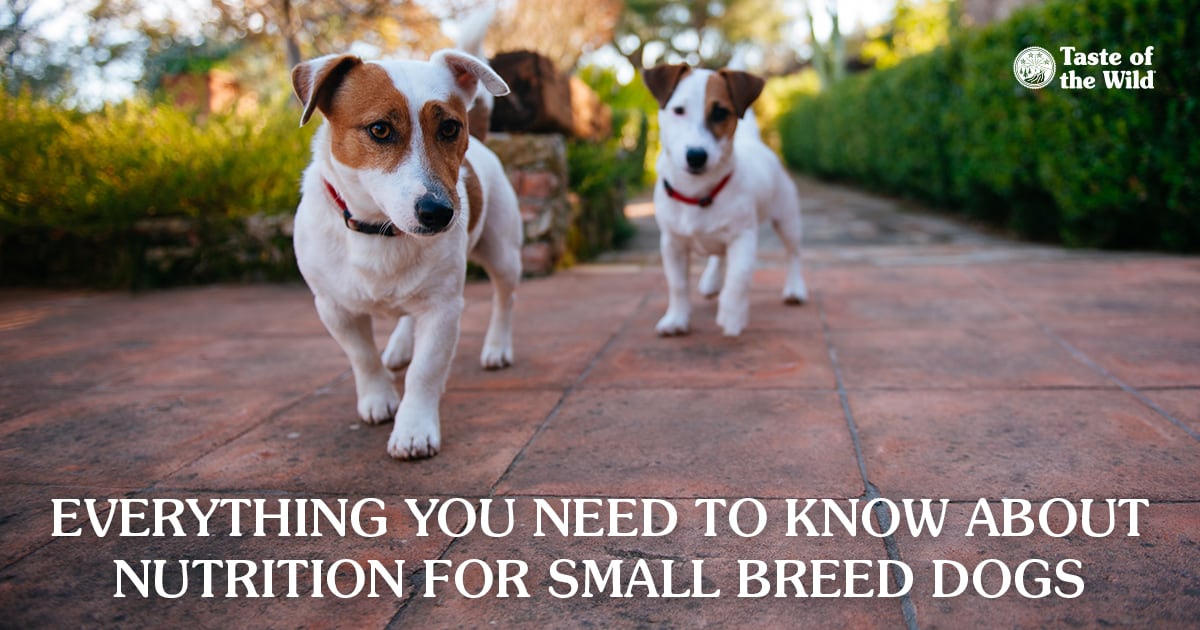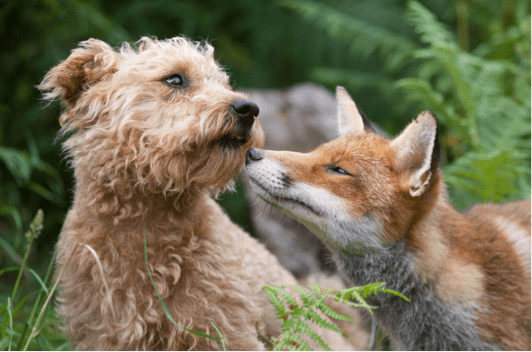
The ancestors of small breed dogs, though slight in size, were shrewd and wary hunters. And when it came to enjoying their spoils, they left nothing to waste. By taking advantage of the full animal, they acquired other nutrients beyond those that are found in meat protein. So when choosing a pet food for your small breed pup, it’s important to find one that meets the big nutritional needs of your little guy.

Small breed dogs still have a lot in common with their small canine ancestors, particularly when it comes to nutrition. Photo credit: Richard Bowler
Why does my small dog eat more food per pound than my large one?
Oddly enough, small breed dogs need to take in more calories per pound of body weight than their large breed buddies. This is because they have a much higher metabolic rate and burn through energy much quicker compared to larger dogs. But due to their small size, they can’t consume enough food to meet those nutritional needs in one feeding. In order to get the energy they need in quantities they can handle, food for small breed dogs should be higher in fats and protein and nutrient-dense for optimal health.
My dog has a little mouth — does it need little kibble?
Tiny mouths take tiny bites with tiny teeth. So small kibble size is another thing to keep in mind for your pet’s food — choose a formula made just for small dogs for their dental comfort.
Small dogs can live a long time! What do I need to know to keep them healthy for the long haul?
Small breed dogs tend to have relatively long life spans, with some breeds living upwards of 15 years. In fact, the majority of the longest living breeds are small breed dogs. A diet rich in antioxidants from fruits and vegetables helps to prevent the damage from free radicals that accumulates over a long life.

Max, a beagle, dachshund and terrier mix, lived to be almost 30 years old.
When you think small breed, think big nutrition. By feeding a healthy, balanced and nutrient-dense diet, you’re helping to make sure your little guy will be warming your lap for years to come.
The information in this blog has been developed with our veterinarian and is designed to help educate pet parents. If you have questions or concerns about your pet's health or nutrition, please talk with your veterinarian.
